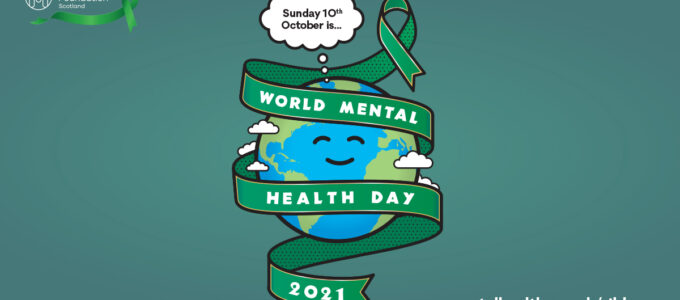
World Mental Health Day takes place on 10 October each year and is an opportunity for us all to consider how we are feeling and how we can reach out to those around us who may be struggling. The theme this year is “Make mental health and wellbeing for all a global priority”, which emphasises that mental health should be viewed as equally as important as mental health. To celebrate World Mental Health Day, 17-year-old Alex has shared their 5 tips and techniques that can be especially helpful for young people in need of a mental health boost.
When we are feeling low or out of sorts, it can be difficult to get the motivation to try and improve your life, but even trivial things can help stop your thoughts spiralling out of control. Remember, doing something to help yourself is usually better than doing nothing. Here are a few helpful tips you can do to improve your mental health.
Check in with your body
When was the last time you ate something and drank water? Did you change your clothes today? Even if you can only have a sip or a small snack, it is still better than nothing. Even just changing your clothes will make you feel fresh. If you cannot bring yourself to shower, try washing yourself off with a cloth or splashing water on your face instead. Any amount of self-care can make a huge difference when we feel down. Children’s Health Scotland has made a Self-Care Checklist with the Mental Health Foundation which can help you brainstorm ways to boost your mood.
Filter your feed
Doomscrolling can seriously impact your mental health. “Doomscrolling or Doomsurfing is the act of spending an excessive amount of screen time devoted to the absorption of negative news. Increased consumption of predominantly negative news may result in harmful psychophysiological responses in some.” Remember, you have more control over your social media than you think. Unfollow people you do not want to see; blacklist tags that can be triggering or even just put you in a slightly bad mood; take a break from the bad news. Try to make your online experience a positive one.
Seek company
It can be tempting to isolate ourselves when we are not feeling well, but that can easily make us feel worse. Spending time with a friend or family member does not necessarily mean you have to talk about why you are not feeling well. It can just mean soaking in their company. Ask your friend to send some funny pictures or to tell you about their day. Play a board game or watch something with a family member. Social interactions are important no matter how small, and you should not rely on others to take the initiative. People may not know you want company unless you ask first.
Set boundaries
This can be difficult to set boundaries, but once they are in place, they can benefit you and those around you. When you make your intentions clear, those around you will feel safer about voicing their own needs to you. Setting boundaries includes asking others to avoid triggering topics, asking that they give a warning before they vent to you, explaining that you cannot always reply to their messages, or asking for a break when you need one.
Don’t Self-Deprecate
Dark humour can seem harmless but can greatly impact how you view yourself. You might not realise it, but words effect your mental state and saying them out loud can make you feel worse. If you cannot find something nice to say about yourself, then just saying something neutral is still better than speaking negatively. Repeatedly joking about yourself in a positive light can actually help your self-esteem and is usually funnier than self-deprecating humour.
Managing your health one step at a time can feel like a hurdle, but in the long run will make a huge difference. You’ve got this!
